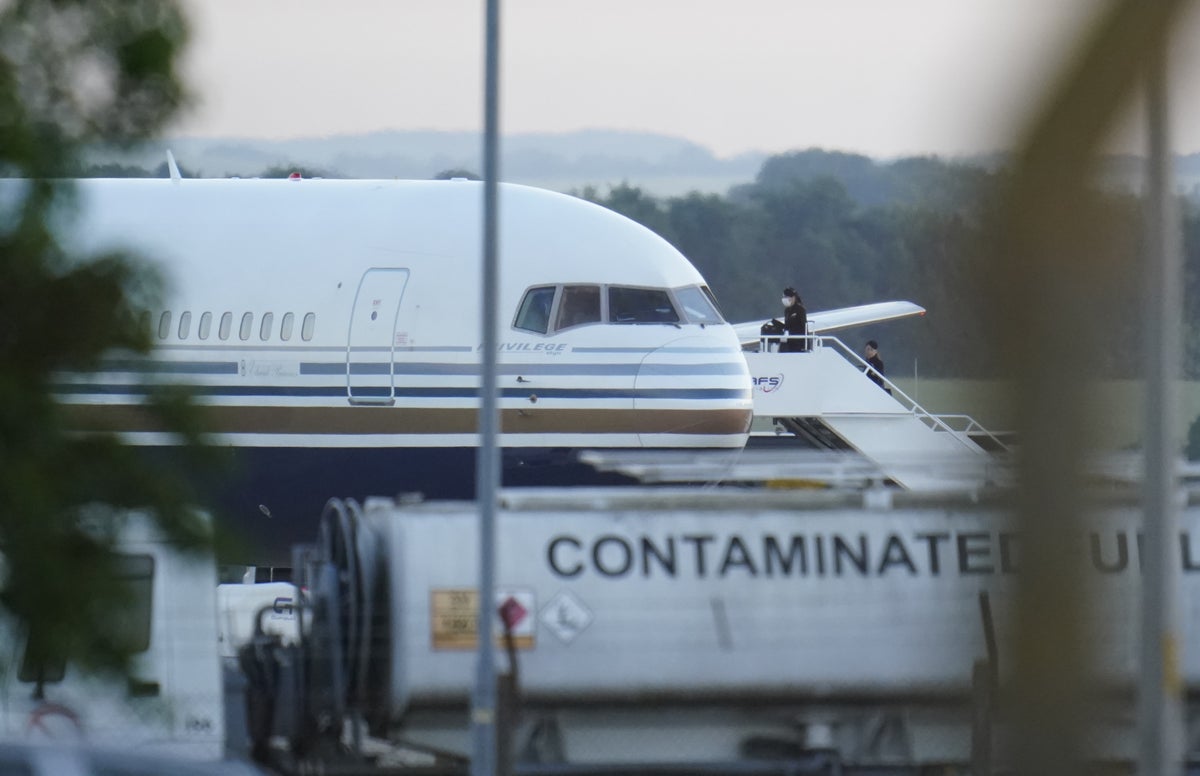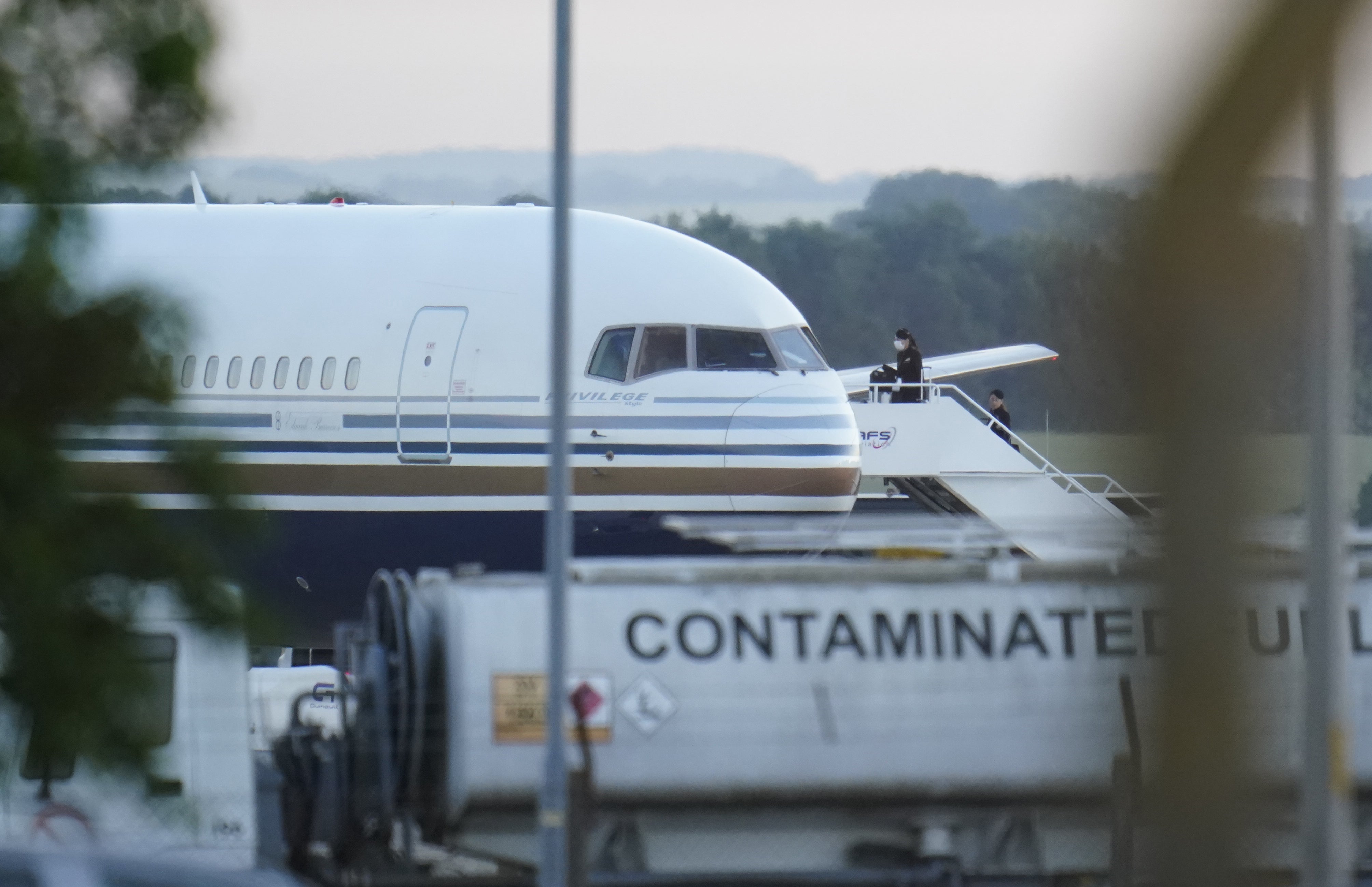
New asylum seekers are being locked up in order to be deported to Rwanda even after court challenges raised questions about whether the controversial removal flights would ever be able to begin.
Campaigners accused ministers of being “untethered from any sense of morality or legality” after it emerged that people seeking refuge in Britain have been placed in detention centres following the grounding of last week’s planned flight.
The Rwanda policy will be subject to a judicial review hearing on 18 July, where a High Court judge will assess whether it is lawful.
On Wednesday, the most senior civil servant in the Home Office admitted that the policy may even fail in its stated aim of deterring migrants from attempting the dangerous journey across the Channel by small boat.
It comes as Boris Johnson flew to Rwanda to attend a commonwealth summit. He is set to meet Prince Charles in Kigali for the first time since it was revealed that the heir to the throne had described the deportation plan as “appalling” in private remarks.
The first planned flight in support of the policy, under which the government hopes to “relocate” asylum seekers to the central African country in a bid to deter them from using small boats to cross the Channel, was thwarted last week following an intervention by the European Court of Human Rights (ECHR).
A total of 979 people have crossed the Channel since the flight was cancelled at the last minute, according to Home Office data.
The government had detained around 130 asylum seekers ahead of the flight, but only issued removal tickets to 47 of them. The majority of the 130 are thought to remain in detention, and detainees are only being released upon submitting a successful bail application to the court.
Despite no further flights being scheduled at this stage, new asylum seekers have continued to be detained and informed that they may be removed to Rwanda. The Independent is aware of at least 18 such cases.
Clare Mosely, founder of Care4Calais, said the charity was in touch with a number of people in this situation. She said: “[The government is] ploughing ahead with this plan while totally ignoring the human consequences.
“I imagine it just wants to deport some people as soon as possible. They don’t care how they do it, but they want the headline. I think they’re just hedging their bets.”
Steve Crawshaw, director of policy and advocacy at Freedom from Torture, said it was “deeply disturbing” that the government was continuing to detain refugees and threaten them with removal to Rwanda.
“We know from our work with torture survivors how traumatising the experience of detention can be. Given the ECHR’s ruling blocked removals until outstanding legal challenges can be heard, this seems to be a cruel attempt to intimidate vulnerable people by a government untethered from any sense of morality or legality,” he added.

Bella Sankey, director of Detention Action, said: “If the government had any respect for our legal system, it would stop issuing notices of intent until our courts have determined whether or not it’s lawful to expel asylum seekers to Rwanda.”
It comes as a new analysis undertaken by the Oxford Migration Observatory shows that nine in every 10 people who were refused asylum in Britain two years ago were free to remain in the country, according to The Guardian – fuelling concern that the Rwanda policy fails to address fundamental problems in the asylum system, such as removals.
Speaking to the home affairs select committee on Wednesday morning, Home Office permanent secretary Matthew Rycroft acknowledged that the Rwanda plan could lead to riskier Channel crossings being attempted, or a move back to more clandestine arrivals in the backs of lorries.
After agreeing that it could pose these risks, he added: “It would be a pyrrhic victory if this set of policies were successful in closing down the small boat route but created something even more dangerous. That would not be a victory at all, so we need to make sure we’re thinking about this in the round.”
A Home Office spokesperson said: “Where it is necessary to secure their removal we will keep people in detention, but if a court orders that an individual due to be on [last] Tuesday’s flight should be released on bail, we will tag them where appropriate.
“Our world-leading and innovative migration partnership with Rwanda will ensure those making dangerous journeys to the UK are relocated to Rwanda to rebuild a new life there.”







